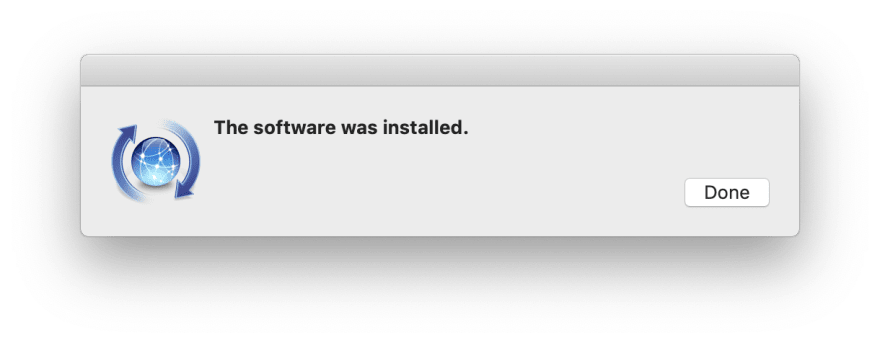
:max_bytes(150000):strip_icc()/001_how-to-install-homebrew-on-mac-4780201-8d9a84f726c14ebb92565f6de7f7b8f6.jpg)
- #Install ipopt for mac os homebrew install#
- #Install ipopt for mac os homebrew driver#
- #Install ipopt for mac os homebrew full#
To install it, copy and paste this on the command prompt: 1. Homebrew allows you to avoid possible security issues related to the use of the sudo command to install software like Node. Homebrew is a package manager for Mac that simplifies the installation of many different software or packages such as Git, Python or Pygame. Homebrew can install its own current versions of glibc and gcc for older distributions of Linux. Homebrew does not use any libraries provided by your host system, except glibc and gcc if they are new enough. It can be installed in your home directory, in which case it does not use sudo. Homebrew was formerly referred to as Linuxbrew when running on Linux or WSL. Please report issues and feature requests via the Github issue tracker.The Homebrew package manager may be used on Linux and Windows Subsystem for Linux (WSL). To see the list of MadNLP solver options, check the OPTIONS.md file. WARN, max_wall_time = 3600 ) Solver options DEBUG, max_iter = 100 ) NLPModels interface using MadNLP, CUTEst model = CUTEstModel ( "PRIMALC1" ) madnlp ( model, linear_solver = MadNLP. optimize! ( graph, ipopt linear_solver = MadNLP. INFO, max_iter = 100 )) ( model, x, start = 0.0 ) ( model, y, start = 0.0 ) ( model, Min, ( 1 - x ) ^ 2 + 100 * ( y - x ^ 2 ) ^ 2 ) optimize! ( model ) Plasmo interface using MadNLP, Plasmo graph = OptiGraph () ( graph, n1 ) ( graph, n2 ) ( n1, 0 = 2 ) ( graph, n1 = n2 ) MadNLP. JuMP interface using MadNLP, JuMP model = Model (() -> MadNLP. MadNLP is interfaced with modeling packages: julia > ENV = "/usr/local/bin/gcc-9" # C compiler julia > ENV = "/usr/local/bin/gfortran" # Fortran compiler julia > ENV = "openblas" # default is MKL julia > ENV = false # default is true julia > ENV = "-O2" # default is -O3 Usage After obtaining the files, run pkg > build MadNLPīuild can be customized by setting the following environment variables.
#Install ipopt for mac os homebrew driver#
To use cuSOLVER, functional NVIDIA driver and corresponding CUDA toolkit need to be installed by the user. The absolute path for deps/download can be obtained by: julia > import MadNLP joinpath ( dirname ( pathof ( MadNLP )), ".", "deps", "download" ) To use Pardiso, the user needs to obtain the Paridso shared libraries from, place the shared library file (e.g., libpardiso600-GNU720-X86-64.so) at deps/download, and place the license file in the home directory. Then, the tarball coinhsl-2015.06.23.tar.gz should be placed at deps/download.
#Install ipopt for mac os homebrew full#
To build MadNLP with HSL linear solvers (Ma27, Ma57, Ma77, Ma86, Ma97), the source codes need to be obtained by the user from under Coin-HSL Full (Stable). MadNLP is interfaced with non-Julia sparse/dense linear solvers:Īll the dependencies except for HSL solvers, Pardiso, and CUDA are automatically installed. If they are not installed, do shell > sudo apt install gcc # Linux shell > brew cask install gcc # MacOS The build process requires C and Fortran compilers. Installation pkg > add MadNLP BuildĪutomatic build is currently only supported for Linux and MacOS.


MadNLP seeks to streamline the development of modeling and algorithmic paradigms in order to exploit structures and to make efficient use of high-performance computers. MadNLP implements a filter line-search algorithm, as that used in Ipopt. MadNLP is a nonlinear programming (NLP) solver, purely implemented in Julia.


 0 kommentar(er)
0 kommentar(er)
